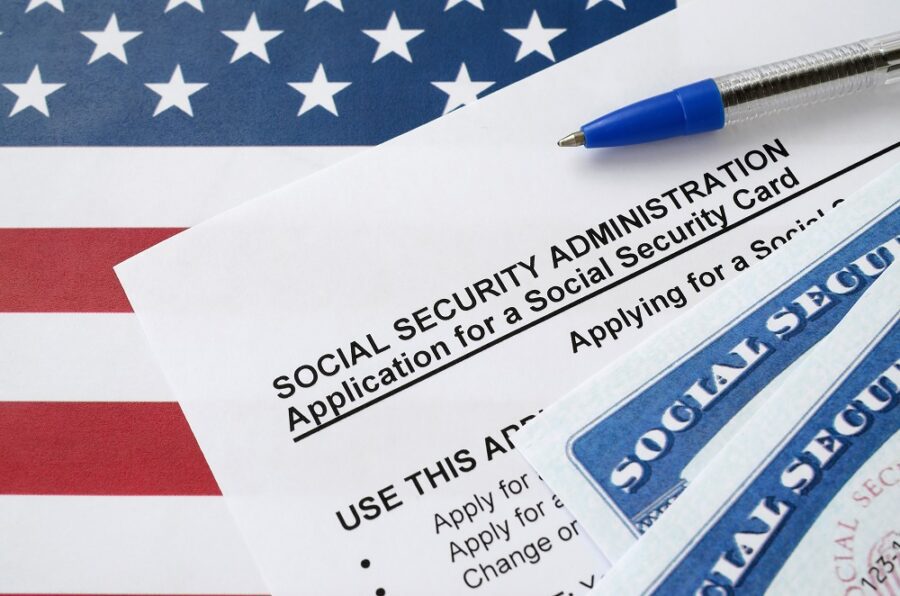Since you’ve become a part of the workforce, all that you heard was accumulate, accumulate, accumulate. You need to have money in your retirement account. But do you know anything about withdrawing money from your retirement account?
When you reach the end of your working years, you will need to live on the money you have saved for the following two to three decades, so try to save as much as you can, especially in tax-advantaged accounts like 401(k)s, IRAs, and Roths, as well as registered brokerage accounts.
Withdrawing money from your retirement account is not as easy as you think, and you will need a strategy to do this correctly. By doing this, you may increase the amount of money you have in your account. So, are you ready to find out more?

1. Learn how things are working
Before withdrawing money from your retirement account, you need to know the landscape. You need to know a few basic things about taxes and how they work. Maybe you think that these two topics are not related, but they truly are.
There are more types of accounts, but when talking about taxes, there are three of them.
The taxable accounts are your standard brokerage accounts, which are also your Treasury Direct accounts for savings and I bonds. You deposit funds that you have previously paid income taxes on.
It increases in value, and every year you have to pay taxes on any gains that you earn. You can deduct losses from gains in taxable accounts dollar for dollar, as well as from up to $3,000 in regular income. We refer to this as “harvesting tax losses.”
Tax-free accounts are the Roth 401(k) and Roth IRA. You deposit funds that you have previously paid income taxes on. The growth of the funds is tax-free. Also, you are not required to withdraw the money. It’s even tax-free to pass on to subsequent generations, which makes it a useful tool for estate planning.
Last but not least, there are the tax-deferred accounts. These include Solo Prepaid Accounts (SEP-IRAs), 403(b)s, 457s, IRAs, and 401(k)s. In these accounts, you deposit the pretax money.
The way these accounts work is that you keep your money there to grow without being taxed, and after years and years, when you are retired and want to withdraw the money, you will need to pay the taxes at your current income tax rate.
Money can be withdrawn penalty-free at age 59½ (generally there is a 10% tax), and required minimum distributions (RMDs) must be taken out starting at age 73.
So, if you plan on withdrawing money from your retirement account, these are the basics you need to know about taxes and accounts.
2. Asset location is crucial
We often hear the term “asset allocation,” which refers to an investor’s selection of equities, bonds, cash, and other assets based on their age, goals, and risk tolerance. But when withdrawing money from your retirement account, we have a different asset location.
The main idea behind asset location is to choose the accounts where you keep your investments to reduce your overall tax burden.
Now, considering this, there are two things you need to think about. First of all, the actual investments. Keeping anything that pays money in a tax-deferred account is something you should definitely think about doing. You pay interest at your regular income rate, and this is ideal. Your potential income distribution increases with the size of your bond holdings. In a brokerage account, that can truly make the difference.
In contrast, you should probably think about storing tax-effective investments in a brokerage account, such as municipal bonds, equities, exchange-traded funds (ETFs), and real estate investment trusts (REITs). Gains from asset sales might be partially offset by harvesting losses in a brokerage account.
The second thing you need to consider is withdrawing money from your retirement account. Every asset you own should be invested for about the length of time you wish it to remain in the account. For this reason, if you want to hang onto your most aggressive assets for as long as possible, a Roth IRA, which does not need RMDs, is often the best option. Roth 401(k)s will also no longer require RMDs as of 2024.
3. Be careful about IRMAA
When it comes to withdrawing money from your retirement account, there is no standard approach that works for everyone, partly because no one else has the specific time-based demands that you have for your hard-earned cash.
Experts often follow this order to optimize tax efficiency or pay Uncle Sam as little as possible, so keep that in mind: Take money from tax-deferred, tax-free, and finally taxable accounts (or Roth). Remember that in retirement, “you’re in a rather low tax bracket when you’re living primarily on Social Security income.”
To avoid raising your tax bracket and increasing your taxable income, you should take withdrawals from the taxable accounts first rather than the tax-deferred accounts. It can also raise your Medicare rates, which can be even more costly.
4. Fixed amount is key
If you want a consistent flow of income, you might want to think about withdrawing money from your retirement account in a systematic manner. This means that you have to pick an amount of money you want to withdraw regularly, perhaps once a month, once a quarter, or once a year.
This approach may be effective in providing you with retirement income, but it ignores investment performance. You might not have enough money in your account to support monthly withdrawals at the same rate during retirement if your assets don’t increase as you planned.
What you want to do is make things work in such a way that withdrawing money from your retirement account regularly is possible. Consider the Social Security benefit you will receive and try to calculate how much money you will need extra from your retirement account every month so you can have enough.

5. Charity might help
If you always want to give some of what you have to a charity, we want you to know that this might help when you want to withdraw money from your retirement account. Using your retirement resources for charity can make a difference, and if this is your cup of tea, you should try it.
The rules are simple: to meet their necessary minimum distribution, those 70 1/2 years of age or older may make qualifying charitable distributions, or tax-free gifts, to charities directly from their IRAs up to $100,000 each year.
A donation of this kind is not considered income, so the donor’s income tax burden is minimized. Your spouse may additionally contribute up to $100,000 annually if you file a combined return.
It is important to note that individuals who donate money to charities tax-free from their IRAs will not be able to claim the donation as an itemized charitable deduction.
As you might have noticed, withdrawing money from your retirement account is not a straightforward process, and it requires some preparation beforehand. We hope that you have found this guide useful, and we welcome any additional tips or insights you may have on the subject. Please feel free to share them with us in the comments section below!
You might find this book helpful in learning more about this topic: The Tax Bomb In Your Retirement Accounts: And How The Roth Can Help You Avoid It
You should also read: Retirement Planning Pitfalls: 5 Shocking Reasons Seniors Blow Up Their Golden Years









